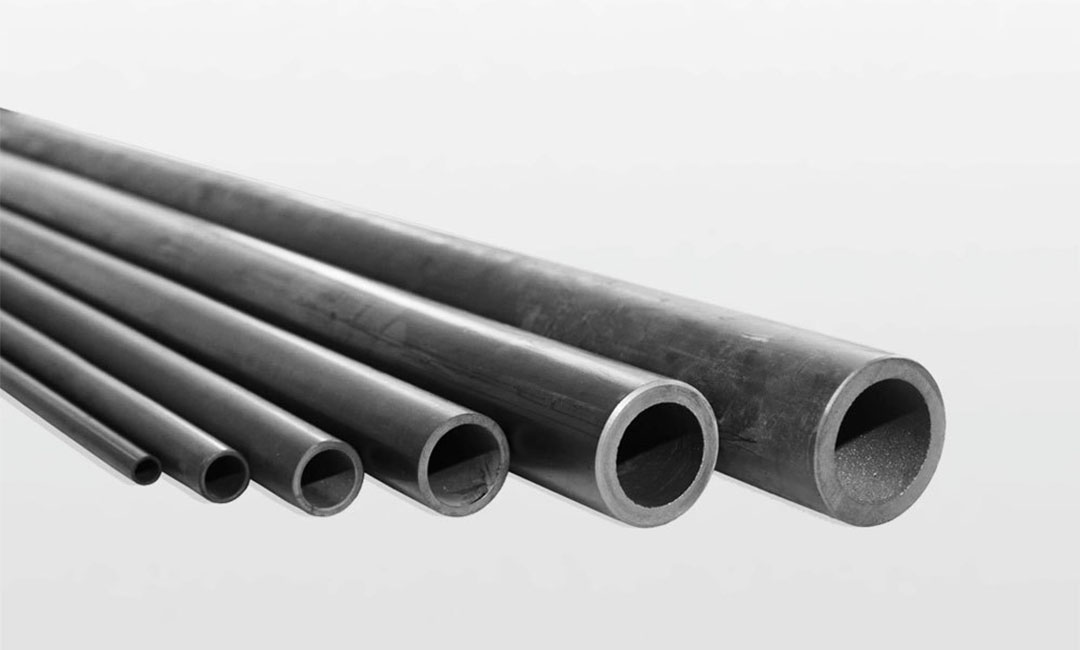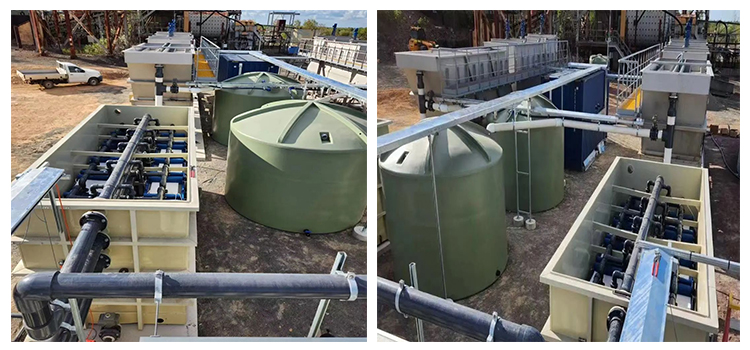Water Treatment Solutions Using SiC Tubular Membranes
Silicon carbide (SiC) tubular membranes have emerged as a transformative technology in the field of water treatment, offering a range of advantages that enhance the efficiency and effectiveness of filtration processes. These membranes are characterized by their exceptional mechanical strength, chemical resistance, and thermal stability, making them particularly suitable for demanding industrial applications. As industries increasingly prioritize sustainability and environmental responsibility, the adoption of SiC tubular membranes in water treatment solutions has gained significant traction.
One of the primary applications of SiC tubular membranes is in the treatment of industrial wastewater. Industries such as pharmaceuticals, food and beverage, and petrochemicals generate large volumes of wastewater that often contain complex contaminants. Traditional filtration methods may struggle to effectively remove these pollutants, leading to environmental concerns and regulatory challenges. SiC tubular membranes, with their fine pore structure, provide a reliable solution for the removal of suspended solids, bacteria, and even dissolved organic matter. This capability not only ensures compliance with stringent discharge regulations but also facilitates the recycling and reuse of water, thereby promoting resource conservation.
In addition to industrial wastewater treatment, SiC tubular membranes are increasingly utilized in the desalination process. As freshwater resources become scarcer due to population growth and climate change, the need for effective desalination technologies has never been more pressing. SiC membranes can operate efficiently in high-salinity environments, offering a robust alternative to conventional reverse osmosis systems. Their resistance to fouling and scaling enhances operational longevity, reducing maintenance costs and downtime. Consequently, industries that rely on desalinated water, such as agriculture and energy production, can benefit from the enhanced performance and reliability of SiC tubular membranes.
Moreover, the versatility of SiC tubular membranes extends to the treatment of drinking water. Ensuring the safety and quality of drinking water is a paramount concern for municipalities and water treatment facilities. SiC membranes can effectively remove pathogens, heavy metals, and other harmful contaminants, providing a high level of assurance regarding water safety. The ability to operate at elevated temperatures and in harsh chemical environments further positions SiC membranes as a preferred choice for advanced oxidation processes and other innovative treatment methods. As a result, the integration of SiC tubular membranes into drinking water treatment systems can significantly enhance public health outcomes.
Another noteworthy application of SiC tubular membranes is in the field of bioprocessing. The pharmaceutical and biotechnology industries often require precise filtration techniques to separate valuable products from complex mixtures. SiC membranes can facilitate the clarification of fermentation broths and the recovery of biomolecules, thereby improving yield and purity. Their robustness allows for continuous operation under varying conditions, which is essential for maintaining productivity in biomanufacturing processes. This adaptability not only streamlines production but also contributes to the overall efficiency of bioprocessing operations.
In conclusion, the adoption of SiC tubular membranes in water treatment solutions represents a significant advancement in filtration technology. Their unique properties enable effective treatment of industrial wastewater, desalination, drinking water purification, and bioprocessing applications. As industries continue to seek innovative and sustainable solutions to address water scarcity and pollution, SiC tubular membranes are poised to play a crucial role in shaping the future of water treatment. By leveraging the strengths of this advanced material, industries can enhance their operational efficiency while contributing to environmental sustainability and public health.
Enhancing Food and Beverage Processing with SiC Filtration
Silicon carbide (SiC) tubular membranes have emerged as a transformative technology in the food and beverage processing industry, offering significant advantages in filtration applications. The unique properties of SiC, including its high thermal stability, chemical resistance, and mechanical strength, make it an ideal material for various filtration processes. As the demand for high-quality products and stringent safety standards continue to rise, the adoption of SiC membranes is becoming increasingly prevalent in this sector.
One of the primary applications of SiC tubular membranes in food and beverage processing is in the clarification of liquids. Traditional filtration methods often struggle with the removal of fine particulates and colloidal substances, which can compromise the quality of the final product. SiC membranes, with their precise pore sizes, provide an effective solution by allowing for the efficient separation of solids from liquids. This capability not only enhances the clarity of beverages such as juices and wines but also improves the overall aesthetic and sensory qualities of the products.
Moreover, the use of SiC membranes in microfiltration and ultrafiltration processes has proven beneficial in the dairy industry. The ability to selectively separate proteins, fats, and other components from milk allows for the production of high-value dairy products, such as whey protein concentrates and lactose-free milk. By employing SiC tubular membranes, manufacturers can achieve higher yields and better product consistency, ultimately leading to increased profitability. Additionally, the durability of SiC membranes reduces the frequency of replacements, resulting in lower operational costs and less downtime.
In the realm of beverage production, SiC membranes play a crucial role in the removal of unwanted microorganisms and pathogens. The food and beverage industry is subject to rigorous health regulations, and ensuring the safety of products is paramount. SiC tubular membranes provide an effective barrier against bacteria and viruses, thereby enhancing the safety of beverages. This capability is particularly important in the production of ready-to-drink products, where maintaining sterility throughout the processing chain is essential. The reliability of SiC membranes in this context not only helps manufacturers comply with safety standards but also builds consumer trust in their products.
Furthermore, the environmental benefits of SiC filtration technology cannot be overlooked. As sustainability becomes a focal point for many industries, the food and beverage sector is no exception. SiC membranes facilitate water reuse and recycling, significantly reducing the volume of wastewater generated during processing. This is particularly relevant in regions facing water scarcity, where efficient water management practices are critical. By integrating SiC tubular membranes into their operations, companies can contribute to a more sustainable future while also enhancing their operational efficiency.

In addition to these applications, the versatility of SiC membranes allows for their use in various other processes, such as concentration and fractionation. This adaptability makes them suitable for a wide range of products, from fruit juices to alcoholic beverages. As the food and beverage industry continues to evolve, the demand for innovative filtration solutions will only grow. SiC tubular membranes stand out as a reliable and effective option, offering enhanced performance and sustainability.
In conclusion, the integration of SiC tubular membranes in food and beverage processing represents a significant advancement in filtration technology. Their ability to improve product quality, ensure safety, and promote sustainability positions them as a vital component in modern processing operations. As the industry embraces these innovations, the potential for SiC membranes to reshape the landscape of food and beverage production is immense, paving the way for a more efficient and responsible future.
Advancements in Pharmaceutical Manufacturing Through SiC Membranes
Silicon carbide (SiC) tubular membranes have emerged as a transformative technology in the pharmaceutical manufacturing sector, offering significant advancements in filtration processes. The unique properties of SiC, including its exceptional chemical resistance, thermal stability, and mechanical strength, make it an ideal material for various applications within the pharmaceutical industry. As the demand for high-purity products continues to rise, the integration of SiC membranes into manufacturing processes has become increasingly relevant.
One of the primary advantages of SiC tubular membranes is their ability to provide efficient separation of particles and contaminants from pharmaceutical solutions. This capability is particularly crucial in the production of sterile products, where even minute levels of impurities can compromise product integrity and patient safety. The high permeability of SiC membranes allows for rapid filtration rates, which not only enhances productivity but also reduces processing times. Consequently, manufacturers can achieve higher throughput without sacrificing quality, thereby meeting the stringent regulatory requirements that govern the pharmaceutical industry.
Moreover, the robustness of SiC membranes enables their use in a wide range of operating conditions, including extreme pH levels and high temperatures. This versatility is particularly beneficial in pharmaceutical manufacturing, where various processes, such as solvent extraction and concentration, often involve harsh environments. By utilizing SiC membranes, manufacturers can streamline their operations, as these membranes can withstand the rigors of different chemical processes without degrading or losing efficacy. This durability translates into lower maintenance costs and longer operational lifespans, further enhancing the economic viability of SiC membrane technology.
In addition to their mechanical and chemical properties, SiC tubular membranes also contribute to improved product quality. The precise pore size distribution of these membranes allows for the selective removal of unwanted particles, including bacteria, viruses, and endotoxins. This level of filtration is essential in the production of biopharmaceuticals, where the presence of such contaminants can lead to severe consequences, including product recalls and regulatory penalties. By ensuring that the final product is free from harmful impurities, SiC membranes help manufacturers maintain compliance with industry standards and enhance the overall safety of their products.
Furthermore, the implementation of SiC tubular membranes can lead to significant reductions in water and energy consumption during the filtration process. Traditional filtration methods often require extensive pre-treatment and post-treatment steps, which can be resource-intensive. In contrast, SiC membranes operate efficiently with minimal pre-treatment, thereby conserving valuable resources. This sustainability aspect aligns with the growing emphasis on environmentally friendly practices within the pharmaceutical industry, as manufacturers seek to minimize their ecological footprint while maintaining high production standards.
As the pharmaceutical landscape continues to evolve, the role of SiC tubular membranes in manufacturing processes is likely to expand. Ongoing research and development efforts are focused on optimizing membrane performance and exploring new applications within the industry. Innovations in membrane technology may lead to even greater efficiencies and capabilities, further solidifying SiC’s position as a critical component in pharmaceutical manufacturing.

In conclusion, the advancements brought about by SiC tubular membranes in pharmaceutical manufacturing are profound. Their ability to enhance filtration efficiency, improve product quality, and reduce resource consumption positions them as a vital technology in the industry. As manufacturers strive to meet the increasing demands for high-purity products, the adoption of SiC membranes will undoubtedly play a pivotal role in shaping the future of pharmaceutical production.

